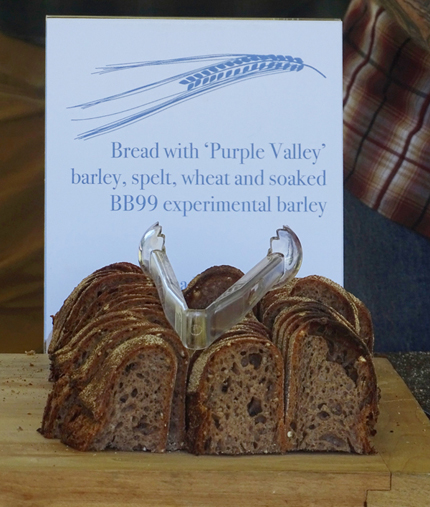5585 Guilford Road • Madison, WI 53711-5801 • 608-273-8080 • Fax 608-273-2021
www.agronomy.org
Twitter | Facebook
NEWS RELEASE
Contact: Hanna Jeske, Associate Director of Marketing and Brand Strategy, 608-268-3972, hjeske@sciencesocieties.org
Why do we need to keep breeding new crop varieties?
Feb. 7, 2019 – Crop breeders continue to improve familiar crops. The February 7th Sustainable, Secure Food blog describes crop breeders’ progress towards the future of barley, wheat, and potato varieties.
 “Global warming and changes in the amount–and location–of water are key factors in the need to continue crop breeding programs,” write crop breeders Patrick Hayes, Bob Zemetra, and Sagar Sathuvalli of Oregon State University. “In addition, there are many diseases that affect crop yield and quality. We need to continue breeding new disease-resistant crop varieties to ensure a healthy, adequate food supply.”
“Global warming and changes in the amount–and location–of water are key factors in the need to continue crop breeding programs,” write crop breeders Patrick Hayes, Bob Zemetra, and Sagar Sathuvalli of Oregon State University. “In addition, there are many diseases that affect crop yield and quality. We need to continue breeding new disease-resistant crop varieties to ensure a healthy, adequate food supply.”
The researchers describe efforts to improve these important crops:
- Barley: “Barley breeders are working to make barley more robust in the face of climate change. We also work to make it a more profitable crop for farmers, and more available to consumers,” says Hayes. This includes breeding barley that can survive winter’s cold and barley that is resistant to drought. Breeders are also working to expand the choice of barleys that can be used as a whole grain.
- Wheat: “Increasing variation in temperature and moisture availability…also expands the regions where diseases and insect pests of wheat are found,” Zemetra says. Researchers are working to more efficiently pinpoint desired wheat traits in the genetic code. “That helps us be creative and look at ways to cross-breed different varieties. The new higher yielding varieties will carry the desired traits for disease resistance, temperature tolerance, and end-use quality.”
- Potatoes: “Potatoes are an important food crop for food security,” writes Sathuvalli. “They carry calories for energy and many essential nutrients. They are a powerful delivery system for nutrition. Potatoes are one of the highest-yielding crops per hectare of arable land.” In addition to increasing this crop’s efficiency in the field, researchers are finding improved ways to “use genetic resources and minimize losses due to tuber-borne diseases.”
To read the complete blog, visit Sustainable, Secure Food at https://sustainable-secure-food-blog.com/2019/02/07/why-do-we-need-to-keep-breeding-new-crop-varieties.